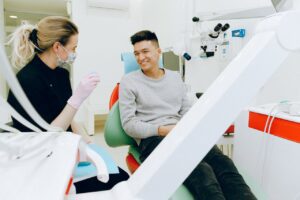Finding an eye doctor might be low on your list of things to do, but trust us when we tell you that it should be a top priority. Proper eye health isn’t something that’s often talked about. Keeping your eyes healthy needs to be a focus, starting at a young age, and the first step is scheduling regular exams.
“But my vision is perfect, so what’s the point of searching for eye exams near me?” This is a common question, especially for lucky individuals with 20/20 vision. You need to keep in mind that eye health isn’t solely a reflection of your vision. You could see perfectly fine, but this does not mean your eyes are as healthy as they could be.
Why Now?
An eye exam is also a great way to monitor the health of the rest of your body. Eye exams can help diagnose many non-eye related diseases like high blood pressure and diabetes. Even cancer can be determined through a routine eye exam.
If you’re finally convinced to start searching for an eye doctor near you, here are a few things to consider before making an appointment.
Customer Reviews and Patient Satisfaction
Just as you would read customer/patient reviews for anything else, the same applies to an eye exam. Narrow down your list of potential eye doctors in your area by rating them based on patient satisfaction. You can trust your fellow patients since they are likely to leave honest reviews about the overall care and facilities.
Qualifications of the Examiner
What qualifications does the eye professional hold? There are 3 main classes of eye professionals: optician, optometrist, and ophthalmologist. An optician has been trained to fit vision aids like glasses and contacts. They are not actually doctors, so an optician is unable to assess and diagnose.
An optometrist is a doctor who has been clinically trained to assess, diagnose, and treat a variety of eye-related diseases. The most qualified eye medical professional is an ophthalmologist, a surgeon specialized in eye diseases. Chances are you won’t need to see an ophthalmologist, but try and schedule your appointment with an optometrist instead of an optician.
Insurance Providers
Does your current insurance plan cover eye exams? If they are, this is a huge consideration when making your appointment. Find an eye clinic that supports your insurance. You should be able to find this information on either your insurance provider’s website or the site of the eye clinic itself. If you do not have eye exam coverage, the cost is something to consider.
Selection of Products
After you’ve had your exam, you may or may not need to purchase a new pair of glasses or contacts. If you opt for glasses, you’ll want something stylish, of course, so find a clinic that carries top-of-the-line frames. And contact wearers should have a decent selection of lenses to choose from, like daily lenses or monthly ones.









